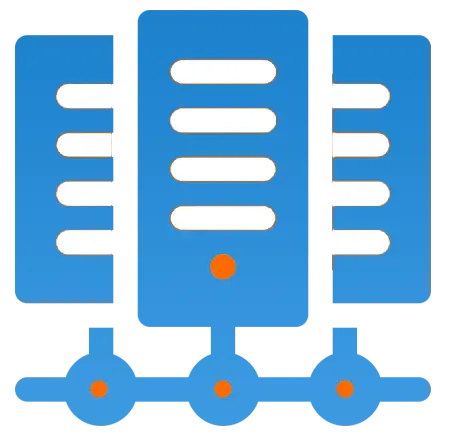Get 69% Off on Cloud Hosting : Claim Your Offer Now!
- Products
-
Compute
Compute
- Predefined TemplatesChoose from a library of predefined templates to deploy virtual machines!
- Custom TemplatesUse Cyfuture Cloud custom templates to create new VMs in a cloud computing environment
- Spot Machines/ Machines on Flex ModelAffordable compute instances suitable for batch jobs and fault-tolerant workloads.
- Shielded ComputingProtect enterprise workloads from threats like remote attacks, privilege escalation, and malicious insiders with Shielded Computing
- GPU CloudGet access to graphics processing units (GPUs) through a Cyfuture cloud infrastructure
- vAppsHost applications and services, or create a test or development environment with Cyfuture Cloud vApps, powered by VMware
- Serverless ComputingNo need to worry about provisioning or managing servers, switch to Serverless Computing with Cyfuture Cloud
- HPCHigh-Performance Computing
- BaremetalBare metal refers to a type of cloud computing service that provides access to dedicated physical servers, rather than virtualized servers.
-
Storage
Storage
- Standard StorageGet access to low-latency access to data and a high level of reliability with Cyfuture Cloud standard storage service
- Nearline StorageStore data at a lower cost without compromising on the level of availability with Nearline
- Coldline StorageStore infrequently used data at low cost with Cyfuture Cloud coldline storage
- Archival StorageStore data in a long-term, durable manner with Cyfuture Cloud archival storage service
-
Database
Database
- MS SQLStore and manage a wide range of applications with Cyfuture Cloud MS SQL
- MariaDBStore and manage data with the cloud with enhanced speed and reliability
- MongoDBNow, store and manage large amounts of data in the cloud with Cyfuture Cloud MongoDB
- Redis CacheStore and retrieve large amounts of data quickly with Cyfuture Cloud Redis Cache
-
Automation
Automation
-
Containers
Containers
- KubernetesNow deploy and manage your applications more efficiently and effectively with the Cyfuture Cloud Kubernetes service
- MicroservicesDesign a cloud application that is multilingual, easily scalable, easy to maintain and deploy, highly available, and minimizes failures using Cyfuture Cloud microservices
-
Operations
Operations
- Real-time Monitoring & Logging ServicesMonitor & track the performance of your applications with real-time monitoring & logging services offered by Cyfuture Cloud
- Infra-maintenance & OptimizationEnsure that your organization is functioning properly with Cyfuture Cloud
- Application Performance ServiceOptimize the performance of your applications over cloud with us
- Database Performance ServiceOptimize the performance of databases over the cloud with us
- Security Managed ServiceProtect your systems and data from security threats with us!
- Back-up As a ServiceStore and manage backups of data in the cloud with Cyfuture Cloud Backup as a Service
- Data Back-up & RestoreStore and manage backups of your data in the cloud with us
- Remote Back-upStore and manage backups in the cloud with remote backup service with Cyfuture Cloud
- Disaster RecoveryStore copies of your data and applications in the cloud and use them to recover in the event of a disaster with the disaster recovery service offered by us
-
Networking
Networking
- Load BalancerEnsure that applications deployed across cloud environments are available, secure, and responsive with an easy, modern approach to load balancing
- Virtual Data CenterNo need to build and maintain a physical data center. It’s time for the virtual data center
- Private LinkPrivate Link is a service offered by Cyfuture Cloud that enables businesses to securely connect their on-premises network to Cyfuture Cloud's network over a private network connection
- Private CircuitGain a high level of security and privacy with private circuits
- VPN GatewaySecurely connect your on-premises network to our network over the internet with VPN Gateway
- CDNGet high availability and performance by distributing the service spatially relative to end users with CDN
-
Media
-
Analytics
Analytics
-
Security
Security
-
Network Firewall
- DNATTranslate destination IP address when connecting from public IP address to a private IP address with DNAT
- SNATWith SNAT, allow traffic from a private network to go to the internet
- WAFProtect your applications from any malicious activity with Cyfuture Cloud WAF service
- DDoSSave your organization from DoSS attacks with Cyfuture Cloud
- IPS/ IDSMonitor and prevent your cloud-based network & infrastructure with IPS/ IDS service by Cyfuture Cloud
- Anti-Virus & Anti-MalwareProtect your cloud-based network & infrastructure with antivirus and antimalware services by Cyfuture Cloud
- Threat EmulationTest the effectiveness of cloud security system with Cyfuture Cloud threat emulation service
- SIEM & SOARMonitor and respond to security threats with SIEM & SOAR services offered by Cyfuture Cloud
- Multi-Factor AuthenticationNow provide an additional layer of security to prevent unauthorized users from accessing your cloud account, even when the password has been stolen!
- SSLSecure data transmission over web browsers with SSL service offered by Cyfuture Cloud
- Threat Detection/ Zero DayThreat detection and zero-day protection are security features that are offered by Cyfuture Cloud as a part of its security offerings
- Vulnerability AssesmentIdentify and analyze vulnerabilities and weaknesses with the Vulnerability Assessment service offered by Cyfuture Cloud
- Penetration TestingIdentify and analyze vulnerabilities and weaknesses with the Penetration Testing service offered by Cyfuture Cloud
- Cloud Key ManagementSecure storage, management, and use of cryptographic keys within a cloud environment with Cloud Key Management
- Cloud Security Posture Management serviceWith Cyfuture Cloud, you get continuous cloud security improvements and adaptations to reduce the chances of successful attacks
- Managed HSMProtect sensitive data and meet regulatory requirements for secure data storage and processing.
- Zero TrustEnsure complete security of network connections and devices over the cloud with Zero Trust Service
- IdentityManage and control access to their network resources and applications for your business with Identity service by Cyfuture Cloud
-
-
Compute
- Solutions
-
Solutions
Solutions
-
 Cloud
Hosting
Cloud
Hosting
-
 VPS
Hosting
VPS
Hosting
-
GPU Cloud
-
 Dedicated
Server
Dedicated
Server
-
 Server
Colocation
Server
Colocation
-
 Backup as a Service
Backup as a Service
-
 CDN
Network
CDN
Network
-
 Window
Cloud Hosting
Window
Cloud Hosting
-
 Linux
Cloud Hosting
Linux
Cloud Hosting
-
Managed Cloud Service
-
Storage as a Service
-
 VMware
Public Cloud
VMware
Public Cloud
-
 Multi-Cloud
Hosting
Multi-Cloud
Hosting
-
 Cloud
Server Hosting
Cloud
Server Hosting
-
 Bare
Metal Server
Bare
Metal Server
-
 Virtual
Machine
Virtual
Machine
-
 Magento
Hosting
Magento
Hosting
-
Remote Backup
-
 DevOps
DevOps
-
 Kubernetes
Kubernetes
-
 Cloud
Storage
Cloud
Storage
-
NVMe Hosting
-
 DR
as s Service
DR
as s Service
-
-
Solutions
- Marketplace
- Pricing
- Resources
- Resources
-
By Product
Use Cases
-
By Industry
- Company
-
Company
Company
-
Company
Web Mail vs Email Client: Key Differences Explained
Table of Contents
- Web%20Mail%20vs%20Email%20Client%3A%20Key%20Differences%20Explained<%2Fstrong>%20https%3A%2F%2Fcyfuture.cloud%2Fblog%2Fweb-mail-vs-email-client-key-differences-explained%2F" title="" onclick="essb.tracking_only('', 'whatsapp', '503164317', true);" target="_self" rel="nofollow" >WhatsApp
In today’s digital world, emails are a critical communication tool. Whether for business, personal use, or both, choosing the right method to access and manage your emails can make a significant difference in efficiency. Two common methods are webmail and email clients. While both are designed to help you send, receive, and organize emails, they differ in how they function.
In this blog, we will explore the key differences between webmail and email clients, helping you decide which one suits your needs best. Let’s get started!
What is Web Mail?
Webmail refers to accessing your email account via a web browser. This service allows you to check your inbox, send messages, and organize your emails directly from the browser without needing any special software. Popular webmail providers include Gmail, Yahoo Mail, and Outlook.com.
One of the primary advantages of webmail is its accessibility. All you need is an internet connection and a browser. Moreover, your emails are stored on the cloud, meaning they are accessible from any device, anywhere, as long as you log in to your account.
What is an Email Client?
An email client, on the other hand, is a software application installed on your device to manage emails. It can be used on desktops, laptops, or mobile devices. Email clients download messages from the server, which allows you to manage them offline. Popular email clients include Microsoft Outlook, Mozilla Thunderbird, and Apple Mail.
Unlike webmail, an email client offers more control over your email management. You can organize your messages, set up filters, and even work offline. However, you will need to configure the client with the right server settings (IMAP, POP3, SMTP) to sync with your email hosting provider.
Key Differences Between WebMail & Email Clients
Let’s take a closer look at the fundamental differences between webmail and email clients.
1. Accessibility
One of the most noticeable differences is accessibility. Webmail is designed to be accessible from any device connected to the internet. All you need is a browser and your login credentials. It’s ideal for people who frequently switch devices or travel often.
In contrast, an email client generally requires installation on a specific device. However, it can be more efficient for users who prefer managing emails on a single device and do not want to depend on internet access for managing their inboxes.
2. Ease of Use
Web mail services are generally easier for the average user to use. They provide an intuitive interface that does not require any setup. All you need to do is sign up for an email account, log in, and start sending and receiving messages. Webmail also provides user-friendly features such as calendars, task management, and contacts, all integrated into the same platform.
An email client, however, can be more complicated to set up, as it involves configuring servers and syncing accounts. Nevertheless, email clients offer more advanced features for managing emails in bulk, filtering, and organizing messages according to custom rules.
3. Storage and Security
When using webmail, all your emails are stored on the server, which is typically in the cloud. This means your messages are accessible from any device and are backed up by the provider. However, this also means that you rely on the service provider for security and privacy.
On the other hand, emails managed through an email client are stored locally on your device (unless you set them to sync with the server). This gives you more control over the security of your data, especially if you store it in a secure, encrypted location. However, it also means that you must back up your emails regularly to avoid losing them in case of hardware failure.
4. Offline Access
Webmail services require an active internet connection to access your emails. Without an internet connection, you cannot send, receive, or read emails. However, some webmail platforms, like Gmail, offer offline mode, allowing you to read and respond to emails when disconnected from the internet.
Email clients, by contrast, allow you to download and store emails on your device, enabling you to work offline. You can write emails, organize your inbox, and perform other tasks even when not connected to the internet. Once you are online again, the email client will sync your changes with the server.
5. Customization and Features
Email clients offer a higher level of customization. You can set up multiple email accounts, create complex email filters, and automate tasks such as sorting emails into specific folders. Additionally, many email clients integrate well with third-party applications, such as calendar apps or project management tools.
Webmail platforms, though generally more streamlined, offer basic customization options. For instance, you can set up folders, manage labels, and apply filters. However, you’ll have fewer advanced features compared to a dedicated email client.
6. Resource Usage
Since webmail operates directly through a browser, it tends to consume more resources on your device. While this isn’t usually a problem for modern devices, running multiple web applications simultaneously can slow down your browser.
Email clients, on the other hand, run as standalone applications, meaning they don’t have the same impact on your browser. However, they can still consume system resources, especially when syncing large volumes of email data.
Which One Should You Choose?
Both webmail and email clients offer distinct advantages, depending on your needs. If you value ease of use, mobility, and accessibility from any device, then webmail is an excellent choice. Webmail also works well for those who don’t need to manage large volumes of emails or require advanced features.
On the other hand, if you prefer advanced customization, offline access, and more control over your data, an email client may be more suitable. Email clients are ideal for users who require powerful email management and those who work with sensitive information that they want to keep on their devices.
Conclusion: Choosing the Right Solution for You
Ultimately, the choice between webmail and an email client depends on your specific needs. Both have their pros and cons, but by evaluating factors like accessibility, offline functionality, and customization, you can make an informed decision.
If you’re looking to take your email experience to the next level, consider choosing Cyfuture Cloud for reliable cloud hosting services. With Cyfuture, you can securely store and manage your emails on dedicated servers, giving you full control over your data and ensuring your emails are always backed up.
Whether you choose webmail or an email client, Cyfuture offers the cloud hosting solutions you need to ensure a seamless and efficient email experience. Reach out to Cyfuture today for superior email management and web hosting services that work for you!
Recent Post

Stay Ahead of the Curve.
Join the Cloud Movement, today!
© Cyfuture, All rights reserved.
Send this to a friend

 Pricing
Calculator
Pricing
Calculator
 Power
Power
 Utilities
Utilities VMware
Private Cloud
VMware
Private Cloud VMware
on AWS
VMware
on AWS VMware
on Azure
VMware
on Azure Service
Level Agreement
Service
Level Agreement 


















